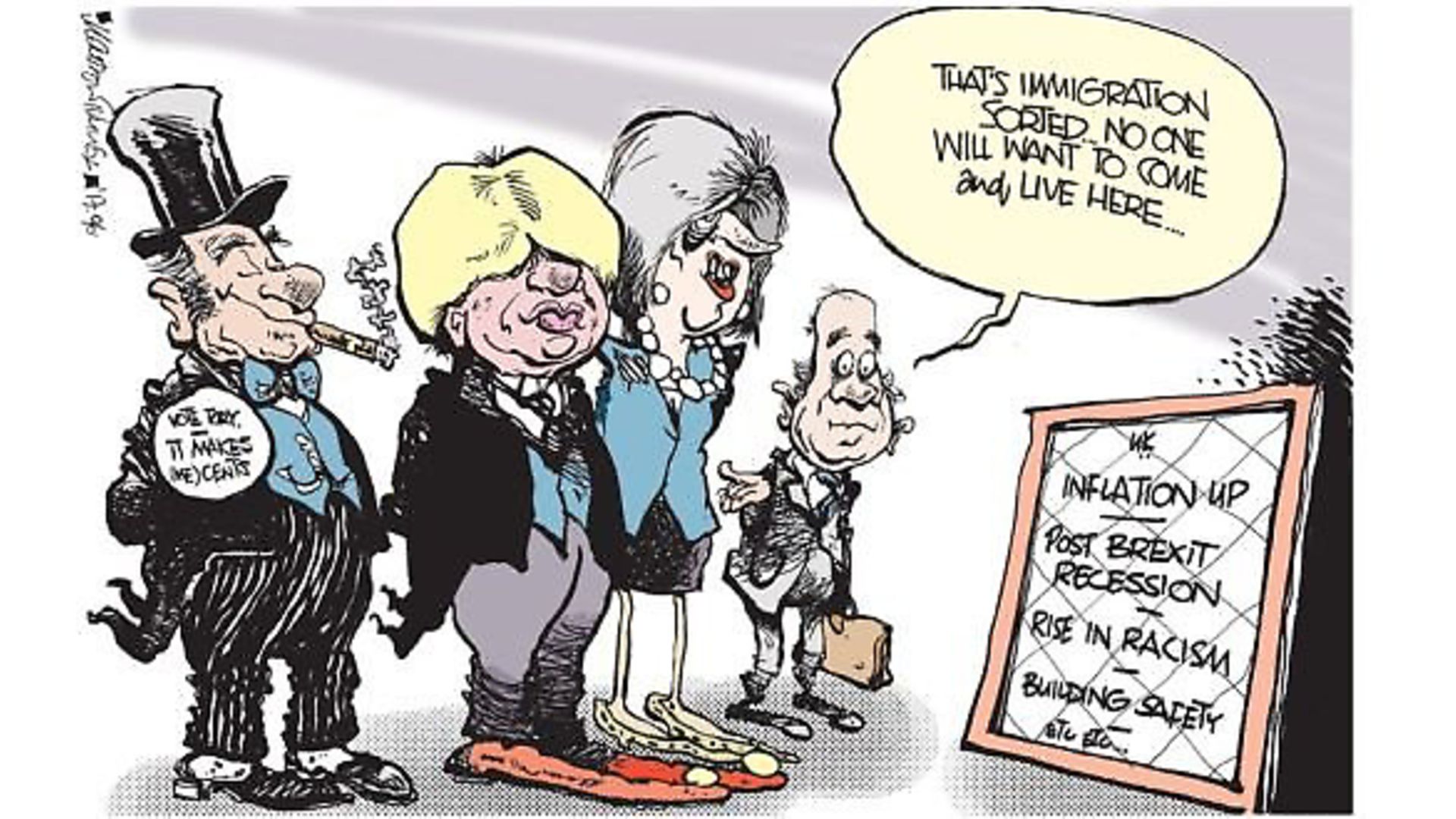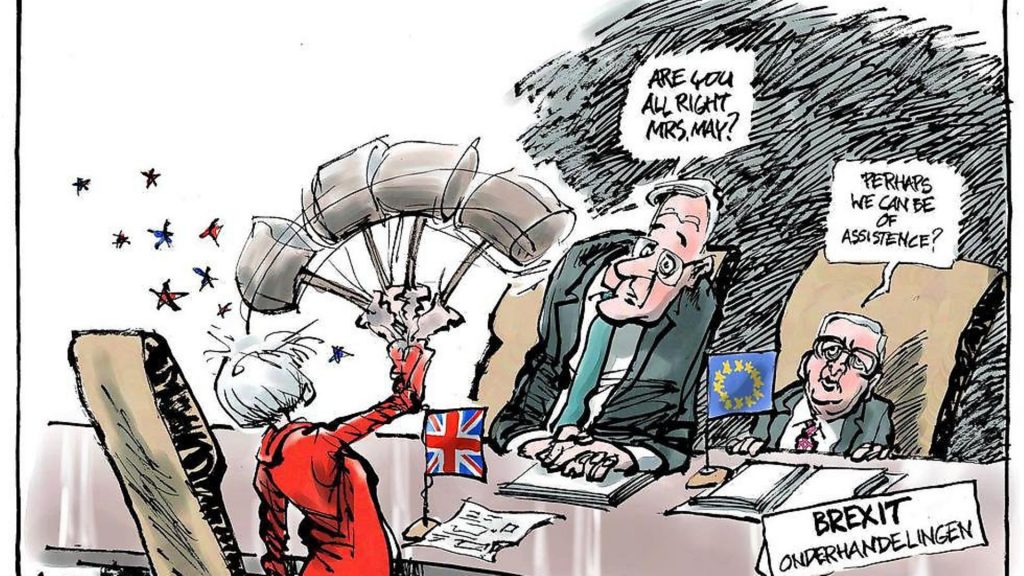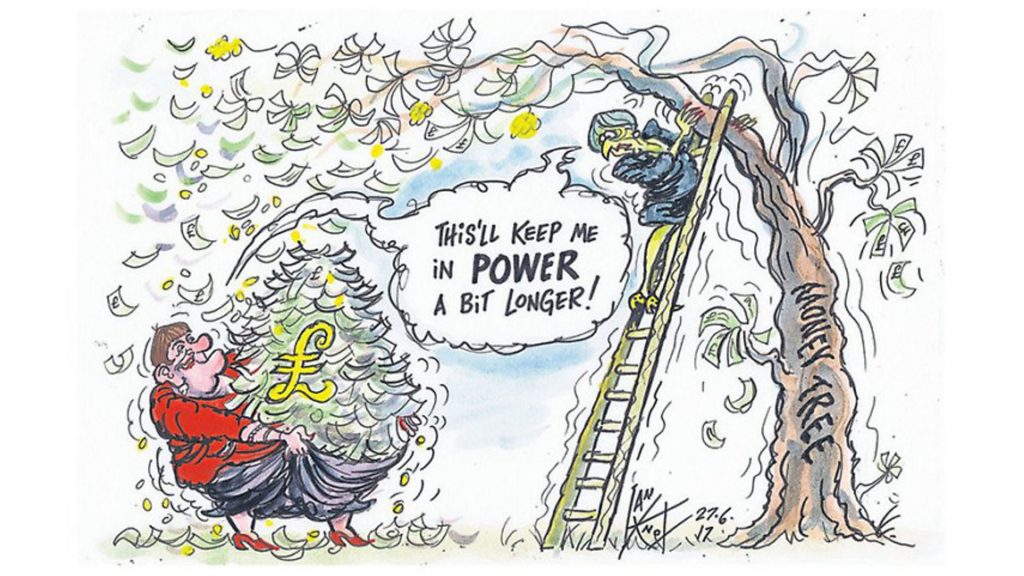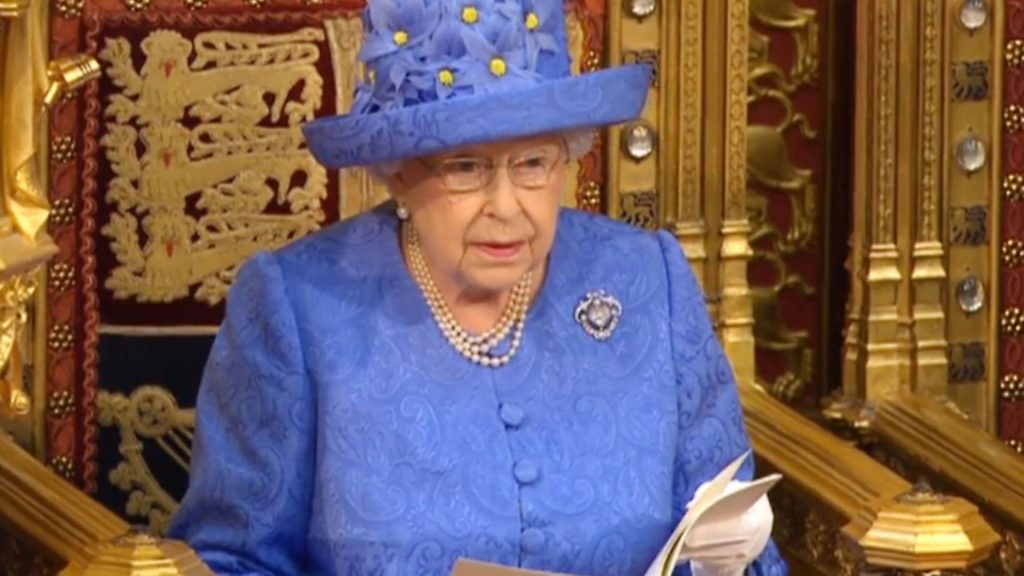
The only thing that might restore our standing is a leader who is prepared to say what needs to be done – changing our mind on Brexit – and then leading the country through that process.

It is pretty remarkable the extent to which people in foreign countries – Trump’s America and Putin’s Russia perhaps excepted – pay so much more attention to our politics than we do to theirs. Whether that is part of the insularity that led to Brexit, or a sense of superiority due to our history, I don’t know, but it is there, for sure.
For Australia, where I am just now, the connections of language, sport, culture, history, Queen and Commonwealth might part explain it. But in recent months, in addition to being asked about Brexit endlessly wherever I go, I have had the experience, among others, of a man out on his bike in Colombia asking me whether I thought Jeremy Corbyn could become Prime Minister – I didn’t at the time, but we are definitely in ‘anything goes’ territory in politics right now; an Italian woman in Tirana airport asking if it was true Tony Blair was returning to Parliament – no – and a hotel manager in Vienna wanting to know if Boris Johnson was as funny as he looked – no to that one too.
Perhaps most surreal of all was the fellow speaker at a conference in Denmark, politics professor Marlene Wind, who told me her son was ‘obsessed’ with the SNP, and did I know how to get a signed photo of Nicola Sturgeon for his bedroom wall? I passed on the request and Jakob, 13, now has more SNP memorabilia en route to add to his SNP sweatshirt and his SNP flag.
Now readers of The New European are clearly better informed than most, but come on – hands up who can name the presidents or prime ministers of Colombia, Italy, Albania and Denmark, let alone the leaders of the Opposition?

Yet when I was doing media in Sydney and Melbourne this week, most interviewers didn’t even need to say who Corbyn was when asking me about him. They assumed their viewers and listeners would know. Every day I have been here, news from the UK has been in the top handful of stories on the television. I even had the surreal experience of arriving in my hotel in Sydney, turning on the telly, and Georgia Gould, the 31-year-old leader of Camden Council, someone I have known and loved since she was a child, was on an Aussie channel explaining why she had taken the decision to evacuate a tower block close to where we both live.
Grenfell Tower, the Manchester and London attacks, the referendum, the election, the Queen’s Speech (and the Queen’s hat), Prince Philip’s health, the government deal with the DUP, the negotiations with the European Commission, even Corbyn at Glastonbury – one of my questioners clearly thought the vast crowd was there exclusively for him, not the music – these have all been getting extensive coverage here.
It would be nice to think that this is partly because Britain really counts for something in the world, and of course we do – at the top table of the UN and NATO and the Commonwealth, a major economy, a world leader in culture, a dominant force in sport. But part of the fascination right now, as described by one of the comms professionals attending my – their words not mine – ‘strategy masterclass’, is that ‘you lot are coming over like a real car crash right now’.
A couple of days before I flew out, there was a similar feeling at the dinner in the Guildhall in London of the Franco-British Young Leaders’ Conference. Where the French have for years quietly expressed jealousy at the state of our politics and our leaders compared with theirs, now it was very much the other way round. Emmanuel Macron has shifted perception of his country overnight, though of course whether that is maintained depends crucially on whether he can deliver the change on which he was elected.

As a Brit who doesn’t much like his country being laughed at, I regret to report that our own current leader, Theresa May, attracted a mix of bemusement, sympathy and scorn among Aussies. If you haven’t seen the Holy Grail spoof which went viral after first appearing on the Insiders television show here, look it up, not just because it’s funny, but because it really does reflect how she is seen. The words of those attending my strategy session would all have to go on the negative side of the SWOT analysis ledger – weak, damaged goods, hapless, useless, incompetent, out of her depth, badly advised (which is the sign of all of the above).
There was bemusement too at the way Labour were, as one of them put it, ‘behaving like they won when they lost – against HER! How can you lose against HER?’
David Cameron didn’t fare much better than his predecessor, because frankly – and this is something you hear virtually everywhere you travel outside the UK – they cannot understand why he called a referendum that put so much at risk, if there was ever a risk of losing it.
Political leadership is fundamental to how a country is seen. France is suddenly so much more interesting than it was a few weeks ago because of Macron. America’s standing here, as in most parts of the world, has taken a big step backwards since Donald Trump became president.
Of all the countries we discussed, Germany was seen most positively, and a lot of that was about how people perceived Angela Merkel. If the Australian comms and strategy advisors had been a German voters’ focus group this was a Merkel spin doctor’s wet dream – strong, strategic, strong values, clear, principled, competent, resilient, serious, intelligent, brave, experienced … on and on they went … ‘everything May wants to be but isn’t’, said one. Ouch.
But even more fascinating for me was that when I put up a picture of Vladimir Putin, though the tone was much less warm, and many of the adjectives less flattering than those used for Merkel, they viewed him if anything as being even more strategic than the German Chancellor.
Of course long termism is easier if you don’t have to worry too much about your parliament or your media or your civic society. Indeed I think one of the reasons Trump is so bizarrely warm towards Putin is admiration – and jealousy – that the Russian President has managed to slay pretty much all forces of Opposition, and tame many of the forces that might normally expected to be ranged against him from abroad. But of all current world leaders they felt he had the clearest objectives, and the clearest strategy – both related to his determination to make Russia count in the world again.
But when I asked how they defined May’s strategy they either shook their heads, or laughed. This really is not good, and it is hard to see how she ever comes back from it. So in one interview I was asked ‘what advice would you give her, other than ‘resign’?’ Actually, I don’t think she can resign right now, because her party is holding her hostage (as are the DUP, expensively) until it sorts itself out, tries to find a new leader and a new strategy and a new way of dealing with the mess she and Cameron have created for them.
Also, she is probably too weakened in her party now even to be able to take the advice I would give her, and it won’t surprise you to know what that advice would be – namely to tell the country the truth as most MPs see it: ‘I have come to realise that many of our problems are actually caused by Brexit, I am concerned that those problems will mount rather than recede. We need to admit this is the wrong course, and so I am moving from this Hard Brexit/Soft Brexit debate to advocate no Brexit at all, and I therefore intend to legislate for an immediate second referendum.’
It would unleash her to be able to show guts and conviction and fight for something that really matters. Her party would go crazy. So would many voters. It would be a big risk. But so was Merkel’s stance on the refugees. So was Macron’s defiant and non-pandering anti-scepticism from right and left. Their guts and conviction are being rewarded, because their people sense strong and bold leadership at a time the world really needs it.
The American economist JK Galbraith said: ‘All of the great leaders have had one characteristic in common: it was the willingness to confront unequivocally the major anxiety of their people in their time. This and not much else is the essence of leadership.’ So climate change. Terrorism. The challenges of demographic and industrial change, and the inequalities they bring. But the major anxiety of our time for Britain, shared by many millions of our friends around the world, is that our country is heading for serious lasting decline as a result of an act of national self-harm on one day last June.
Economically and politically, though the process of departure and decline has barely even begun, we are already weakened, whatever the delusional claims of those politicians and papers who can never bring themselves to admit they may have got it wrong. A real leader would find a way to address that reality rather than limp from one vacuous soundbite to the next, or lurch into a magic money tree deal with the DUP that is shabby and dangerous, and all about her and her party’s short-term interests rather than the country’s long-term success.
Cameron sacrificed his career on the fallout of a referendum he should never have held but which he called in the hope he would settle the issue of Europe forever in his party. May has damaged hers and her reputation beyond repair by calling an election she should never have had in the hope she would win a landslide and have parliamentary support for whatever deal she got, no matter the damage to the country. Between them they have massively reduced Britain’s standing in the world already, and if this path continues it can only get worse.
The only thing that might restore our standing is a leader who is prepared to say what needs to be done – changing our mind on Brexit – and then leading the country through that process.
It is hard to see where that leader is going to come from right now, given neither May nor Corbyn show any sign of wanting to confront this major anxiety of our time. Which is why so many people looking in from outside have a sense of a country inexorably facing decline. Sad but true, and all so bloody avoidable. A tragedy of Shakespearean proportions in the making. Shakespeare, the greatest genius who ever lived, a reminder we will always have a great past to look back on. But the countries that do best tend to be those focused on their young people’s future.










